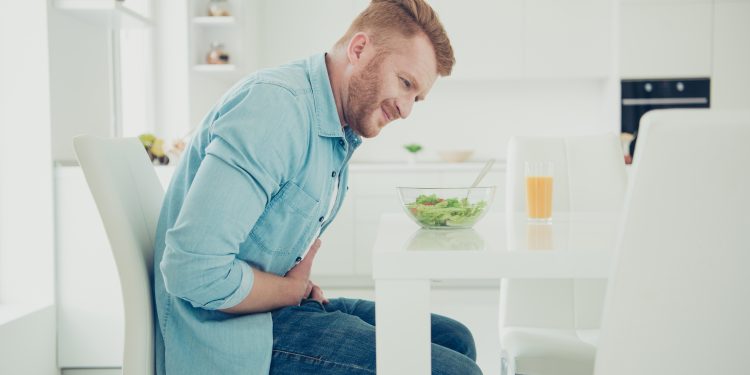by Dr. Lori Jokinen
Nearly 100 trillion bacteria live within your body, specifically in your intestines, that are key to your overall health and immune function. These bacteria are also essential in breaking down carbohydrates, but even more fascinating is their importance to the function of the central nervous system. What this means is that these bacteria, collectively known as your microbiome, actually affect your brain.
The very first step in colonizing bacteria starts at birth and continues within the first few days of life. When babies are born, they are exposed to mom’s bacteria with contact on their skin. Colonization of the bacteria continues with breastfeeding, as breastmilk has two of the most common probiotics, or good bacteria, called lactobacilli and bifidobacteria. Breast milk also contains something called colostrum, which has prebiotics. Prebiotics are the food that feed the good bacteria and are prevalent in breast-milk, especially in the first two weeks of life. What all of this means is that the development of your microbiome starts at birth and continually changes throughout your life.
There is significant variability in the bacterial makeup of individuals. The variation can be in the different kinds of bacteria, known as diversity, and in the amounts of bacteria. This is due to the fact that the microbiome is very dynamic and highly influenced by several factors. It starts at birth, but is then further affected by genetics, diet, metabolism, age, geographic location, stress, medications, and the presence or absence of antibiotic treatment. When these contributing factors come into play, the makeup of the microbiome will shift, which then can cause a host of symptoms, including anxiety and depression.
When a person is stressed, anxious, or depressed, dysregulation occurs in an area of the brain called the hypothalamus and pituitary, and their connection to the adrenal glands. This is known as the HPA (hypothalamic-pituitary-adrenal) axis. Research studies have shown a direct link between the microbiome and the reactivity of the HPA axis. In the presence of stress, long-term changes in the diversity and composition of the gut microbiota can be seen.
When you are stressed, there is an increase in intestinal permeability, which is not desirable. Known as “leaky gut,, it allows bacteria to enter the bloodstream, gain access to the brain, and can lead to a damaging cascade of inflammation. This is the pathway where the bacteria that are present in the gut can affect the brain. If the microbiome is not healthy, and there is an abundance of bad bacteria and/or not enough good bacteria, the brain is then affected.
An inflamed brain damages the tissue and ages the brain more quickly, which has been shown to cause an increase in anxiety or depression, brain fog, fatigue, and memory loss. The good news: The brain and gut are both responsive to natural therapies aimed at improving the microbiome and decreasing inflammation. Interestingly, treatment with probiotics has shown promise in decreasing intestinal permeability and regulating the HPA axis, which then can decrease anxiety and depression.
A multitude of probiotic strains can be found in supplements, and they all have different effects in various areas of the body. Specifically, L. rhamnosus, B. infantis, B. longum, and L. casei have been found to decrease anxiety and depressive behaviors in research studies, so using those strains may give some relief of symptoms. In addition to taking a supplement, your diet plays a big part in the makeup of your microbiome.
One of the most effective ways to increase the diversity of the bacteria in the gut is to eat a wide variety of fresh vegetables. Typically, people get in the habit of eating certain foods, and may even eat the same thing every day. This actually hurts our microbiome, our immune system, and our brain. Adding different vegetables that you haven’t eaten before can quickly transform the microbiome, as you will be consuming a host of different bacteria.
Research has also shown that omega-3 supplements can have a positive effect on the composition of the microbiome and increase the production of anti-inflammatory compounds. Together with good bacteria, fatty acids can help maintain the integrity of the intestinal wall and reduce leaky gut. Omega-3 fatty acids can be found in fish oil supplements and in foods such as salmon, sardines, and walnuts.
The role of the microbiome in mental health cannot be stressed enough. From the day we are born our health depends on our exposures to good bacteria, stressful situations, the use of antibiotics, and our diet. A simple, yet effective, solution to improving your mental health may lie in your gut.
Dr. Lori Jokinen is a Doctor of Chiropractic specializing in functional medicine, nutrition, sports rehabilitation, auto accident injuries, and acupuncture. She incorporates nutrition into all of her patients’ care plans. www.functionalhealthunlimited.com











